How to Write a Winning Study Plan for Your Student Visa for Canada
Are you ready to embark on an academic adventure in Canada? Securing a student visa for Canada is a pivotal step in this journey. One of the most crucial components of your application is the study plan. This document not only outlines your educational goals but also explains why you chose Canada for your studies.
In this blog post, I'll walk you through how to craft an effective study plan that enhances your chances of obtaining a student visa for Canada.
I'm Barbara Kolvekova, RCIC, and my mission is to make immigration advice more accessible and approachable.
Why a Study Plan Matters
A study plan is a detailed outline that explains your academic and professional goals, and why you chose to pursue them in Canada. Immigration officers use this document to assess the genuineness of your intentions and your commitment to returning to your home country after your studies. A well-written study plan can significantly influence the success of your visa application.
How to Write a Study Plan for Your Student Visa Application
1. Introduction
Start your study plan with a brief introduction about yourself. Mention your academic background, professional experience, and your reasons for pursuing further education. Be clear and concise, setting the stage for the detailed explanations that follow.
2. Why Did You Select the Study Program?
Explain why you chose the specific program you are applying to. Highlight its relevance to your previous academic and professional trajectory. For instance, if you have a bachelor's degree in business administration and are applying for an MBA program, emphasize how this advanced degree will enhance your skills and knowledge in the field.
- Example: "With a bachelor's degree in business administration and three years of experience in marketing, I chose the MBA program at [University Name] to deepen my strategic management skills and gain international exposure."
3. How Does This Tie to Your Past Academic/Professional Trajectory?
Show a reasonable progression from your past studies and work experience to the chosen program. This demonstrates that your decision is well thought out and aligns with your long-term career goals.
- Example: "My undergraduate studies in computer science provided a strong foundation in software development. My subsequent role as a software engineer has equipped me with practical skills. The MSc in Artificial Intelligence at [University Name] is a natural progression, allowing me to specialize in cutting-edge technologies."
4. How Does It Differ from Programs in Your Home Country/Region?
Compare the chosen program with similar ones available in your home country. Highlight what makes the Canadian program unique and why it is preferable. This could include factors like curriculum, faculty, research opportunities, or industry connections.
- Example: "While similar programs are available in [Home Country], the curriculum at [University Name] offers a unique focus on sustainable energy solutions, a field that is underdeveloped in my home country. The opportunity to learn from leading experts in this area is unparalleled."
5. Why Canada? Why the Specific Program?
Detail why you chose Canada and the specific institution. Mention Canada's reputation for high-quality education, multicultural environment, and opportunities for international students. Discuss why the specific institution stands out to you.
- Example: "Canada's commitment to education and multiculturalism makes it an ideal destination for international students. [University Name]'s strong industry partnerships and state-of-the-art research facilities make it the perfect place to pursue my studies."
6. Tie the Program to Future Professional Goals/Opportunities
Connect the program to your future career goals, especially in your home country. This is crucial for demonstrating your intent to return home after your studies. Explain how the skills and knowledge you gain will help you achieve your professional aspirations.
- Example: "Upon completing the MBA program, I plan to return to [Home Country] to contribute to the growth of the local startup ecosystem. The strategic management skills and international perspectives gained will be invaluable in driving innovation and economic development."
- If applicable, you can include job posts in your home country for relevant careers
7. Incorporate Your Own Writing and Words
Ensure your study plan reflects your unique voice and perspective. Avoid using generic or boilerplate language. Immigration officers can easily spot a template, and personalizing your study plan makes it more genuine and compelling.
- Example: "As someone passionate about renewable energy, the MSc program at [University Name] aligns perfectly with my career aspirations. I am eager to bring back innovative solutions to address the energy challenges faced by my community in [Home Country]."
Tips for Crafting an Effective Study Plan
Be Honest and Authentic:
- Be truthful about your motivations and plans.
- Authenticity can set your application apart.
Be Specific and Detailed:
- Provide clear and specific examples to support your statements.
- Vague or generic explanations can weaken your application.
Keep It Well-Organized:
- Structure your study plan with clear headings and paragraphs.
- Make it as easy as possible for the immigration officer to read and to follow your narrative.
Proofread Thoroughly:
- Ensure your study plan is free from grammatical and spelling errors.
- Have a trusted friend or family member review it for you.
- A polished document reflects your attention to detail and professionalism.
Signature
- Address the letter to the visa officer and sign your name at the bottom (e-signature is welcome).
- Be sure to include your full name and contact information.
To sum it all up...
Writing a compelling study plan is an essential step in securing your student visa for Canada. By clearly articulating your academic and professional goals, and explaining why Canada is the best place to achieve them, you can make a strong case for your visa application. Remember to personalize your study plan and use your own words to convey your genuine intentions and aspirations.
If you need professional assistance with your study plan or any other aspect of your visa application, don’t hesitate to contact us. Book a 60 minute consultation to gain strategic advice on how to prepare and submit the strongest study permit application.








